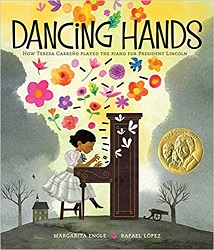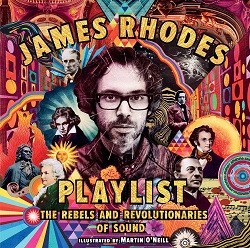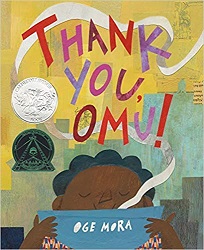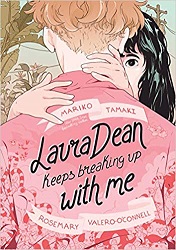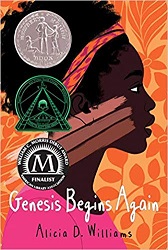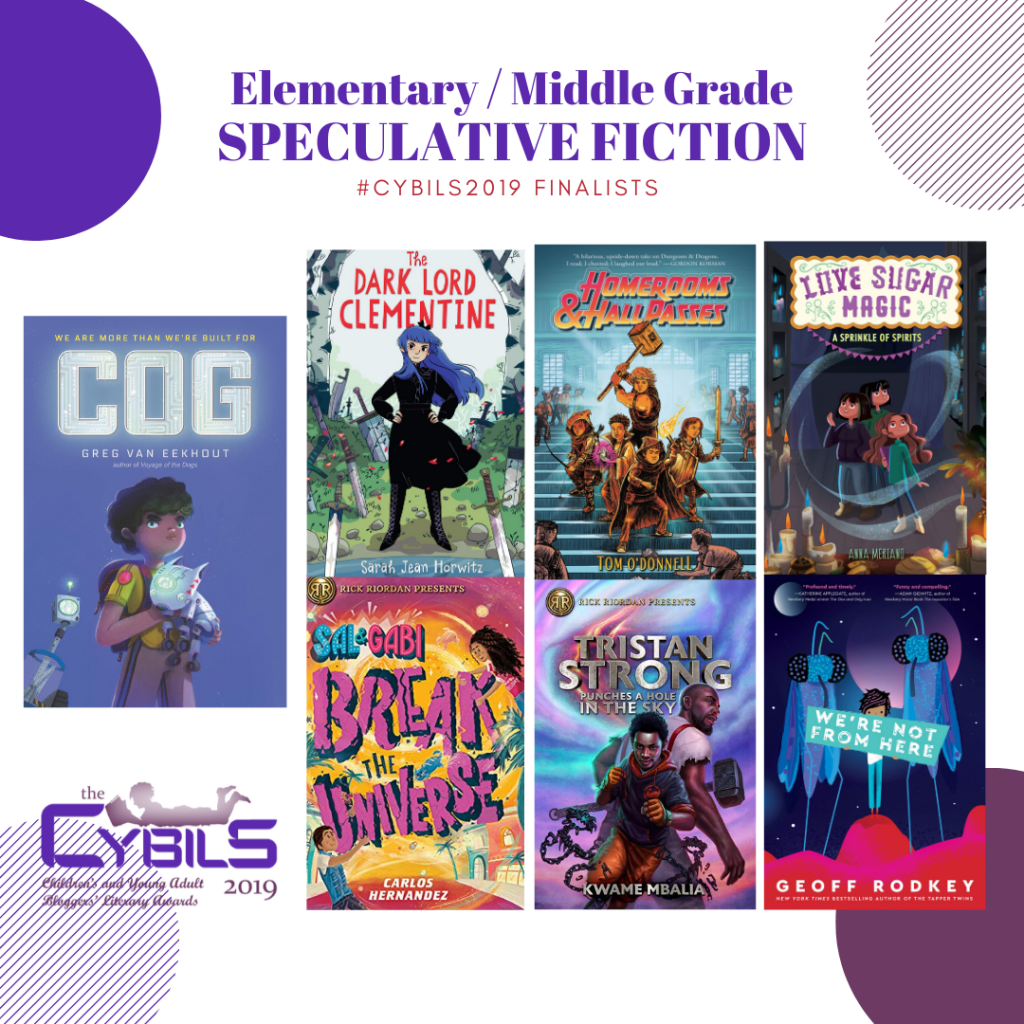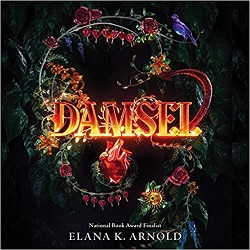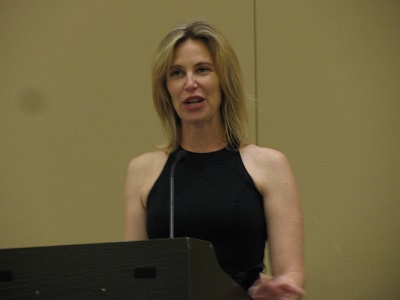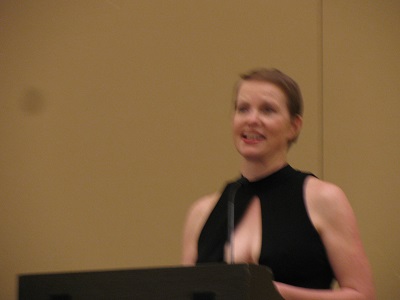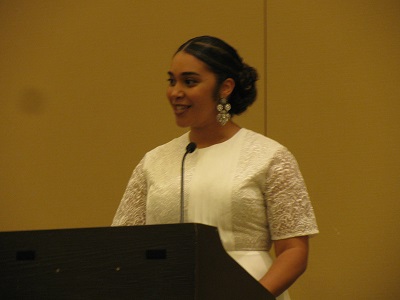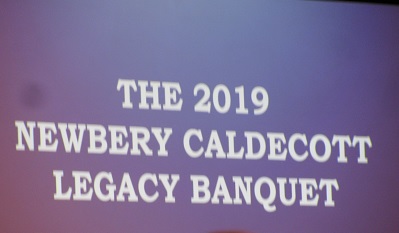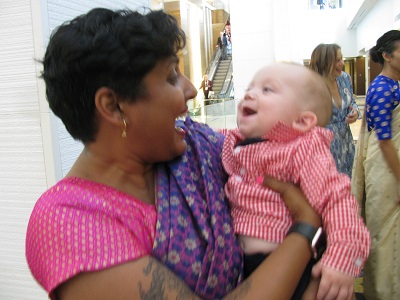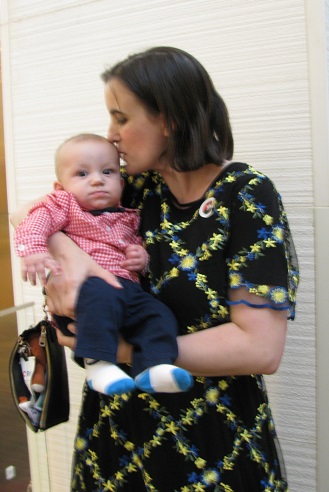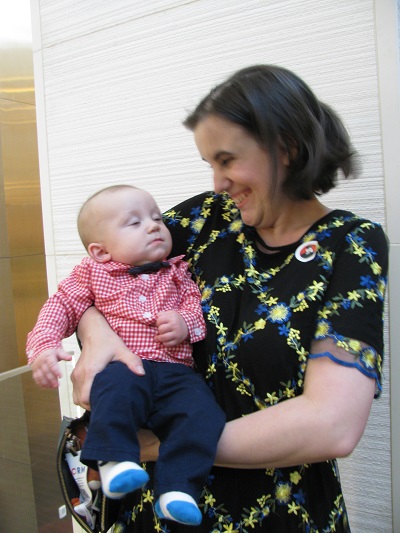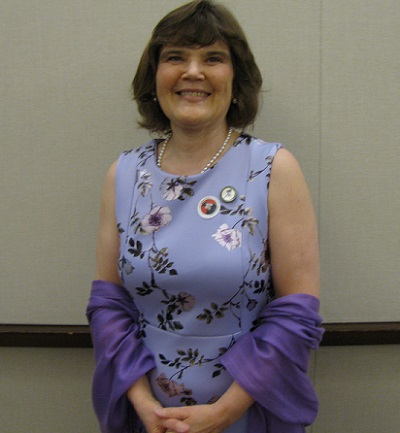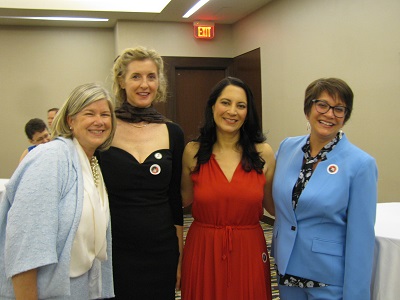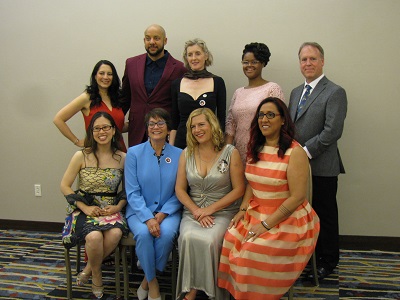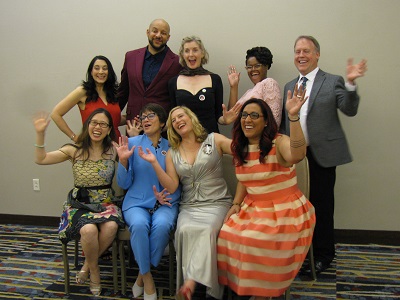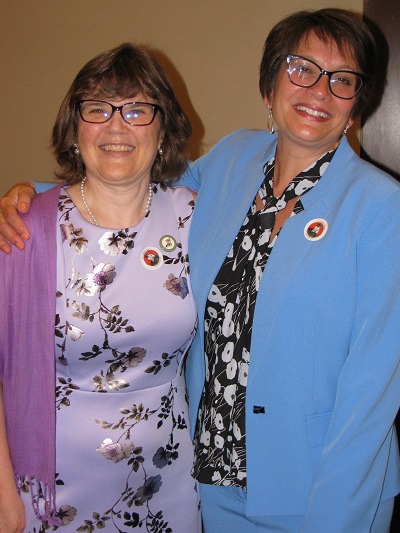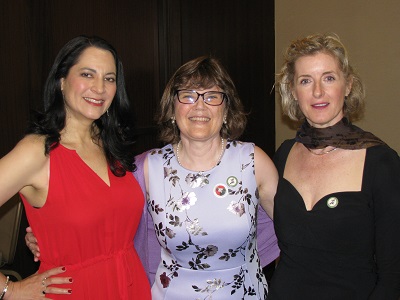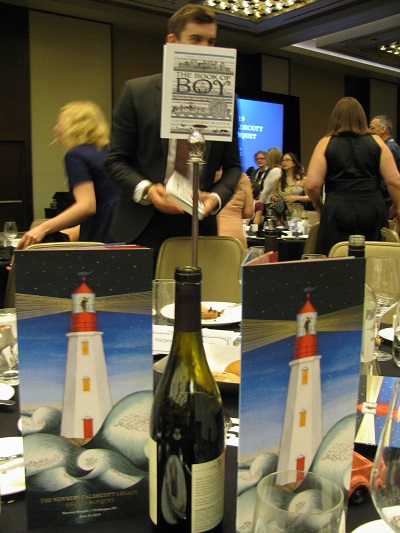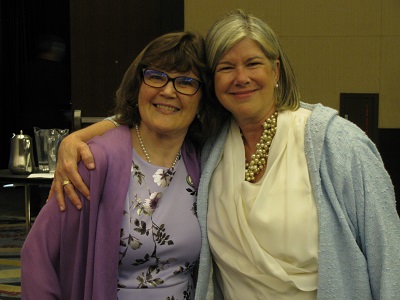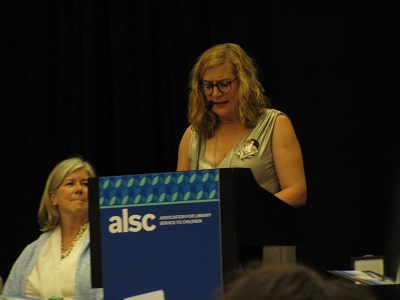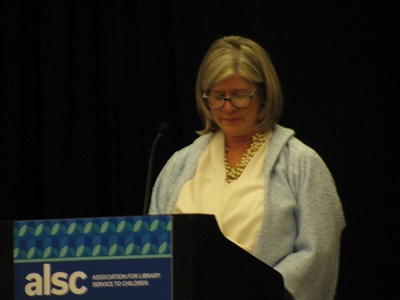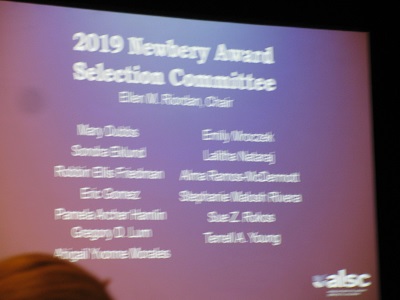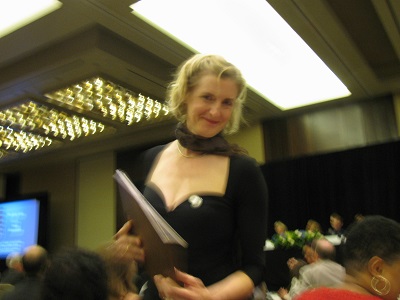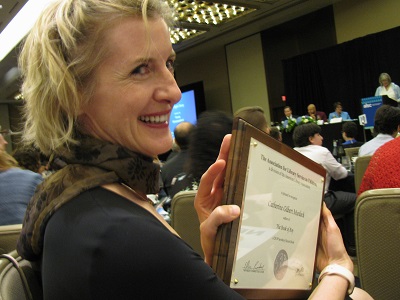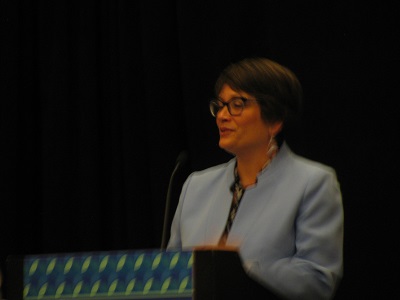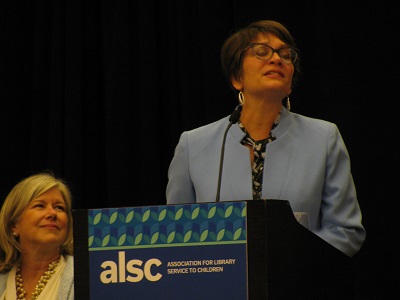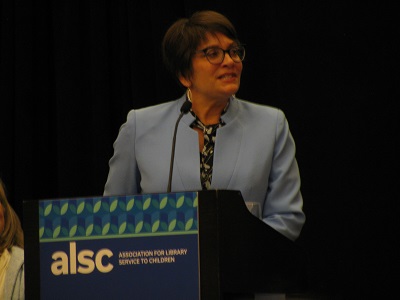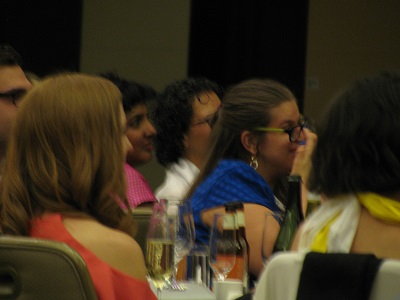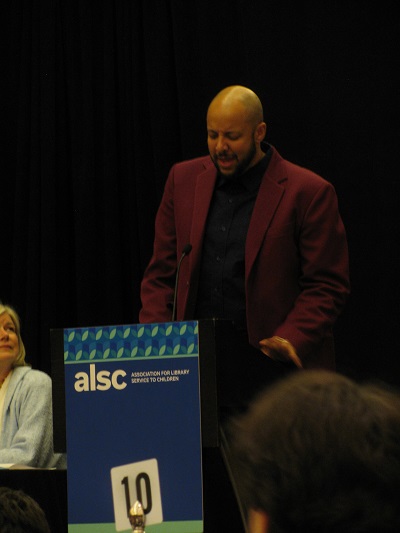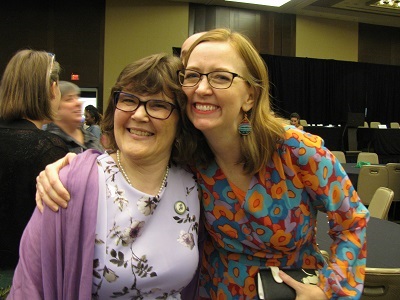
This morning I watched the American Library Association’s 2020 Youth Media Awards, fondly remembering last year when our committee met early in the morning, called the winners, and then had reserved seats at the announcements.
I have read and reviewed many of the winners. I’m afraid there are many that I’ve written a review, but haven’t posted it yet. My plan going forward will be to finish posting my 2019 Sonderbooks Stand-outs, then try to finish posting any award winners whose reviews I haven’t posted yet, and then, yes, finish posting the reviews of my 2018 Sonderbooks Stand-outs. (I couldn’t post any of those children’s book reviews until after the Newbery was announced, so I got way behind.) Then I will try to start catching up on new reviews. We’ll see how I do.
I can honestly say I’m happy about every single book that won. Since I don’t review every picture book I read (There are so very many!), there are many picture book winners that I read but didn’t review. But that doesn’t mean I don’t think they’re wonderful books.
Here is the list of winners from American Libraries magazine.
My list is in the same order as they were presented this morning (except I’ll put winners before honors):
Asian/Pacific American Awards for Literature
Picture Book Winner: Queen of Physics: How Wu Chien Shiung Helped Unlock the Secrets of the Atom, by Teresa Robeson, illustrated by Rebecca Huang
[I read this one and thought it was wonderful, but didn’t review it, which I now regret.]
Picture Book Honor: Bilal Cooks Daal, by Aisha Saieed, illustrated by Anoosha Syed
[Haven’t read yet]
Children’s Literature Winner: Stargazing, by Jen Wang [Review coming!]
Children’s Literature Honor: I’m OK, by Patti Kim [Haven’t read yet]
Young Adult Literature Winner: They Called Us Enemy, by George Takei, Justin Eisinger and Steven Scott, illustrated by Harmony Becker [My #1 Sonderbooks Stand-out in Longer Children’s Nonfiction]
Young Adult Literature Honor: Frankly in Love, by David Yoon [Review coming!]
Sidney Taylor Book Awards given by the Association of Jewish Libraries
Picture Book Winner: The Book Rescuer: How a Mensch from Massachusetts Saved Yiddish Literature for Generations to Come, by Sue Macy, illustrated by Stacy Innerst [Read and enjoyed, but not reviewed]
Picture Book Honors: Gittel’s Journey: An Ellis Island Story, by Lesléa Newman, illustrated by Amy June Bates [Review coming!]
The Key from Spain: Flory Jagoda and Her Music by Debbie Levy, illustrated by Sonja Wimmer [Read and enjoyed, but not reviewed]
Middle Grade Winner: White Bird, by R. J. Palacio [#6 Sonderbooks Stand-out in Children’s Fiction!]
Middle Grade Honors: Games of Deception: The True Story of the First US Olympic Basketball Team at the 1936 Olympics in Hitler’s Germany, by Andrew Maraniss [Not read yet]
Anya and the Dragon, by Sofiya Pasternack [Not read yet]
Young Adult Winner: Someday We Will Fly, by Rachel Dewoskin [Not read yet]
Young Adult Honors: Dissenter on the Bench, by Victoria Ortiz [Not read yet]
Sick Kids in Love, by Hannah Moskowitz [Not read yet]
American Indian Youth Literature Awards
Picture Book Winner: Bowwow Powwow: Bagosenjige-niimi’idim, written by Brenda J. Child (Red Lake Ojibwe), translated into Ojibwe by Gordon Jourdain (Lac La Croix First Nation), and illustrated by Jonathan Thunder (Red Lake Ojibwe) [Read and enjoyed, but not reviewed]
Picture Book Honors: Fry Bread: A Native American Family Story, written by Kevin Noble Maillard (Seminole Nation, Mekusukey Band), illustrated by Juana Martínez-Neal (Peruvian-American)
[read and enjoyed, but not reviewed]
Birdsong, written and illustrated by Julie Flett (Cree-Métis) [Read and enjoyed, but not reviewed]
At the Mountain’s Base, written by Traci Sorell (Cherokee), illustrated by Weshoyot Alvitre (Tongva/Scots-Gaelic) [Not read yet]
We Are Grateful, written by Traci Sorell (Cherokee), illustrated by Frané Lessac [read and enjoyed, but not reviewed]
Raven Makes the Aleutians, adapted from a traditional Tlingit story and illustrated by Janine Gibbons (Haida, Raven of the Double-Finned Killer Whale clan, Brown Bear House) [Not read yet]
[I haven’t read any of the remaining American Indian Literature Award Winners. I plan to remedy this.]
Middle Grade Winner: Indian No More, written by Charlene Willing McManis (Umpqua/Confederated Tribes of Grande Ronde) with Traci Sorell (Cherokee)
Middle Grade Honors: I Can Make This Promise, written by Christine Day (Upper Skagit)
The Grizzly Mother, written by Hetxw’ms Gyetxw (“Bret D. Huson,” Gitxsan), illustrated by Natasha Donovan (Métis Nation of British Columbia)
Young Adult Winner: Hearts Unbroken, by Cynthia Leitich Smith (Muscogee)
Young Adult Honors: Surviving the City, written by Tasha Spillet (Nehiyaw-Trinidadian), illustrated by Natasha Donovan (Métis Nation of British Columbia)
Reawakening Our Ancestors’ Lines: Revitalizing Inuit Traditional Tattooing, gathered and compiled by Angela Hovak Johnston (Inuk), with photography by Cora De Vos (Inuk)
An Indigenous Peoples’ History of the United States for Young People, written by Debbie Reese (Nambé Owingeh) and Jean Mendoza adapted from the adult book by Roxanne Dunbar-Ortiz
Apple in the Middle, written by Dawn Quigley (Ojibwe, Turtle Mountain Band)
Schneider Family Book Awards
(For books that embody an artistic expression of the disability experience)
[Of all of these, I’ve only read one. I’ll note it. And I will do some reading.]
Books for Young Children Winner: Just Ask! Be Different, Be Brave, Be You, written by Sonia Sotomayor, illustrated by Rafael López
Books for Young Children Honor: A Friend for Henry, written by Jenn Bailey, illustrated by Mika Song [Read and enjoyed, but not reviewed]
Middle Grades Winner: Song for a Whale, by Lynne Kelly
Middle Grades Honor: Each Tiny Spark, written by Pablo Cartaya
Books for Teens Winner: Cursed, written by Karol Ruth Silverstein
Books for Teens Honor: The Silence Between Us, written by Alison Gervais
Stonewall Book Awards
(Mike Morgan & Larry Romans?Children’s & Young Adult Literature Award given annually to English-language children’s and young adult books of exceptional merit relating to the gay, lesbian, bisexual, and transgender experience)
Winner: When Aidan Became a Brother, written by Kyle Lukoff, illustrated by Kaylani Juanita [Read and reviewed!]
Winner: The Black Flamingo, written by Dean Atta, illustrated by Anshika Khullar [Not read yet]
Honors: Pet, written by Akwaeke Emezi [Not read yet]
Like a Love Story, written by Abdi Nazemian [Not read yet]
The Best at It, written by Maulik Pancholy [Not read yet]
Coretta Scott King Awards
Virginia Hamilton Award for Lifetime Achievement
Mildred D. Taylor
John Steptoe New Talent Award
Illustrator: What Is Given from the Heart, illustrated by April Harrison, written by Patricia C. McKissack
Author: Genesis Begins Again, written by Alicia D. Williams [Not read yet, but this book is already checked out and what I’m reading next]
Coretta Scott King Illustrator Awards
Winner: The Undefeated, illustrated by Kadir Nelson, written by Kwame Alexander [Reviewed! Not sure why I didn’t make this one of my Stand-outs, because I loved it.]
Honors: The Bell Rang, illustrated and written by James E. Ransome [Read and enjoyed, but not reviewed]
Infinite Hope: A Black Artist’s Journey from World War II to Peace, illustrated and written by Ashley Bryan [Read and reviewed in 2020 — may well be a 2020 Sonderbooks Stand-out! Review will be posted soon.]
Sulwe, illustrated by Vashti Harrison, written by Lupita Nyong’o [Not read yet]
Coretta Scott King Author Awards
Winner: New Kid, written and illustrated by Jerry Craft [Read and reviewed!]
Honors: The Stars and the Blackness Between Them, written by Junauda Petrus [Not read yet]
Tristan Strong Punches a Hole in the Sky, written by Kwame Mbalia [Review coming]
Look Both Ways: A Tale Told in Ten Blocks, written by Jason Reynolds [Read and reviewed!]
Alex Awards
(for the 10 best adult books that appeal to teen audiences)
[I haven’t read any of these.]
A Boy and His Dog at the End of the World, by C. A. Fletcher
Do You Dream of Terra-Two? by Temi Oh
Dominicana, by Angie Cruz
Gender Queer: A Memoir, by Maia Kobabe
High School, by Sara Quin and Tegan Quin
In Waves, by AJ Dungo
Middlegame, by Seanan McGuire
The Nickel Boys, by Colson Whitehead
Red, White & Royal Blue, by Casey McQuiston
The Swallows, by Lisa Lutz
Margaret A. Edwards Award
(for lifetime achievement in writing for young adults)
Steve Sheinkin, specifically for the books Bomb: The Race to Build—and Steal—the World’s Most Dangerous Weapon, The Port Chicago 50: Disaster, Mutiny, and the Fight for Civil Rights, The Notorious Benedict Arnold: A True Story of Adventure, Heroism, & Treachery, and Lincoln’s Grave Robbers
William C. Morris Award
(for a debut book published by a first-time author writing for teens:)
Winner: The Field Guide to the North American Teenager, written by Ben Philippe [Not read yet]
Finalists: The Candle and the Flame, written by Nafiza Azad [Not read yet]
Frankly in Love, written by David Yoon [Review coming]
Genesis Begins Again, written by Alicia D. Williams [Next up!]
There Will Come a Darkness, written by Katy Rose Pool [Not read yet]
YALSA Award for Excellence in Nonfiction for Young Adults
Winner: Free Lunch, by Rex Ogle [My #4 Sonderbooks Stand-out in Longer Children’s Nonfiction]
Finalists: The Great Nijinsky: God of Dance, written and illustrated by Lynn Curlee [Not read yet]
A Light in the Darkness: Janusz Korczak, His Orphans, and the Holocaust, written by Albert Marrin [Not read yet]
A Thousand Sisters: The Heroic Airwomen of the Soviet Union in World War II, written by Elizabeth Wein [Not read yet, but soon]
Torpedoed: The True Story of the World War II Sinking of “The Children’s Ship,” written by Deborah Heiligman [Not read yet]
Michael L. Printz Award
(for excellence in literature written for young adults)
Winner: Dig, by A. S. King [Not read yet]
Honors: The Beast Player, written by Nahoko Uehashi, translated by Cathy Hirano [Not read yet]
Laura Dean Keeps Breaking Up with Me, written by Mariko Tamaki, illustrated by Rosemary Valero-O’Connell [Not read yet]
Ordinary Hazards: A Memoir, written by Nikki Grimes [My #3 Sonderbooks Stand-out in Longer Children’s Nonfiction]
Where the World Ends, written by Geraldine McCaughrean [Not read yet]
Odyssey Award
(for best audiobook produced for children and/or young adults)
Winner: Hey, Kiddo: How I Lost My Mother, Found My Father, and Dealt with Family Addiction, written by Jarrett J. Krosoczka and narrated by the author, Jeanne Birdsall, Jenna Lamia, Richard Ferrone, and a full cast [I haven’t listened to this yet, but the graphic novel it’s based on was my #5 Sonderbooks Stand-out in Longer Children’s Nonfiction for 2018. The review isn’t posted yet, though.]
Honors: Redwood and Ponytail, written by K. A. Holt and narrated by Cassandra Morris and Tessa Netting [Haven’t listened yet]
Song for a Whale, written by Lynne Kelly and narrated by Abigail Revasch with the author [Haven’t listened yet]
We Are Grateful: Otsaliheliga, written by Traci Sorell and narrated by Lauren Hummingbird, Agalisiga (Choogie) Mackey, Ryan Mackey, Traci Sorell, Tonia Weavel [Haven’t listened yet]
We’re Not from Here, written by Geoff Rodkey and narrated by Dani Martineck [Haven’t listened yet, but the book it’s based on is my #1 Sonderbooks Stand-out in Children’s Fiction, and the book was my library’s Newbery Book Club Winner]
Pura Belpré Awards
(honoring a Latino writer and illustrator whose children’s books best portray, affirm, and celebrate the Latino cultural experience)
Illustrator Award Winner: Dancing Hands: How Teresa Carreño Played the Piano for President Lincoln, illustrated by Rafael López, written by Margarita Engle [Not read yet]
Illustrator Honors: Across the Bay, illustrated and written by Carlos Aponte
My Papi Has a Motorcycle, illustrated by Zeke Peña, written by Isabel Quintero [Read and enjoyed, but not reviewed]
¡Vamos! Let’s Go to the Market, illustrated and written by Raúl Gonzalez [Read and enjoyed, but not reviewed]
Author Award Winner: Sal and Gabi Break the Universe, written by Carlos Hernandez [My #5 Sonderbooks Stand-out in Children’s Fiction]
Author Honors: Lety Out Loud, written by Angela Cervantes [Not read yet]
The Other Half of Happy, written by Rebecca Balcárcel [Review coming]
Planting Stories: The Life of Librarian and Storyteller Pura Belpre, written by Anika Aldamuy Denise, illustrated by Paola Escobar [Read and reviewed]
Soldier for Equality: José de la Luz Sáenz and the Great War, written and illustrated by Duncan Tonatiuh [Read and enjoyed but not reviewed]
2020 ALSC Children’s Literature Lecture Award
(recognizing an author, critic, librarian, historian, or teacher of children’s literature, who then presents a lecture at a winning host site)
Winner: Dr. Rudine Sims Bishop
Mildred L. Batchelder Award
(for an outstanding children’s book originally published in a language other than English in a country other than the United States, and subsequently translated into English for publication in the United States)
Winner: Brown, written by Håkon Øvreås, illustrated by Øyvind Torseter, translated by Kari Dickson [Read and enjoyed, but not reviewed]
Honors: The Beast Player, written by Nahoko Uehashi, illustrated by Yuta Onoda, and translated from the Japanese by Cathy Hirano [Not read yet]
The Distance Between Me and the Cherry Tree, written by Paola Peretti, illustrated by Carolina Rabei, translated from the Italian by Denise Muir [Not read yet]
Do Fish Sleep? written by Jens Raschke, illustrated by Jens Rassmus, translated from the German by Belinda Cooper [Not read yet]
When Spring Comes to the DMZ, written by Uk-Bae Lee, illustrated by the author, translated from the Korean by Chungyon Won and Aileen Won [Read and enjoyed, but not reviewed]
Robert F. Sibert Informational Book Award
(for most distinguished informational book for children)
Winner: Fry Bread: A Native American Family Story, written by Kevin Noble Maillard and illustrated by Juana Martinez-Neal [Read and enjoyed but not reviewed]
Honors: All in a Drop: How Antony van Leeuwenhoek Discovered an Invisible World, written by Lori Alexander, illustrated by Vivien Mildenberger [Not read yet]
This Promise of Change: One Girl’s Story in the Fight for School Equality, written by Jo Ann Allen Boyce and Debbie Levy [Review coming]
Ordinary Hazards: A Memoir, written by Nikki Grimes [My #3 Sonderbooks Stand-out in Longer Children’s Nonfiction]
Hey, Water! written and illustrated by Antoinette Portis [Read and enjoyed but not reviewed]
Children’s Literature Legacy Award
(honors an author or illustrator whose books, published in the United States, have made, over a period of years, a substantial and lasting contribution to literature for children through books that demonstrate integrity and respect for all children’s lives and experiences)
Winner: Kevin Henkes
Theodor Seuss Geisel Award
(for the most distinguished beginning reader book)
Winner: Stop! Bot! written and illustrated by James Yang [Not read yet]
Honors: Chick and Brain: Smell My Foot! written and illustrated by Cece Bell [Read and enjoyed but not reviewed]
Flubby Is Not a Good Pet! written and illustrated by J. E. Morris [Read and enjoyed. I reviewed a different book about Flubby.]
The Book Hog, written and illustrated by Greg Pizzoli [Read and enjoyed but not reviewed]
And at this point they always make a comment about the oldest and most well-known Children’s Book Awards:
Randolph Caldecott Medal
(for the most distinguished American picture book for children)
Winner: The Undefeated, illustrated by Kadir Nelson, written by Kwame Alexander [Read and reviewed] [Finally! A Caldecott Medal for Kadir Nelson! So deserved!]
Honors: Bear Came Along, illustrated by LeUyen Pham, written by Richard T. Morris [Read and enjoyed, but not reviewed]
Double Bass Blues, illustrated by Rudy Gutierrez, written by Andrea J. Loney [Not read yet]
Going Down Home with Daddy, illustrated by Daniel Minter, written by Kelly Starling Lyons [Read and enjoyed but not reviewed]
John Newbery Medal
(for the most outstanding contribution to children’s literature)
Winner: New Kid, written and illustrated by Jerry Craft [Read and reviewed]
Honors: The Undefeated, written by Kwame Alexander, illustrated by Kadir Nelson [Read and reviewed]
Scary Stories for Young Foxes, written by Christian McKay Heidicker, illustrated by Junyi Wu [Review coming]
Other Words for Home, written by Jasmine Warga [Read and reviewed]
Genesis Begins Again, written by Alicia D. Williams [Next up!]
A couple of historic things in this set of awards:
The first time a graphic novel has won the Newbery Medal.
I think (but have not yet checked) it’s the first time that both the Newbery and the Caldecott Medal winners matched the Coretta Scott King Award Winners.
What a wonderful set of books!
Happy Reading!
